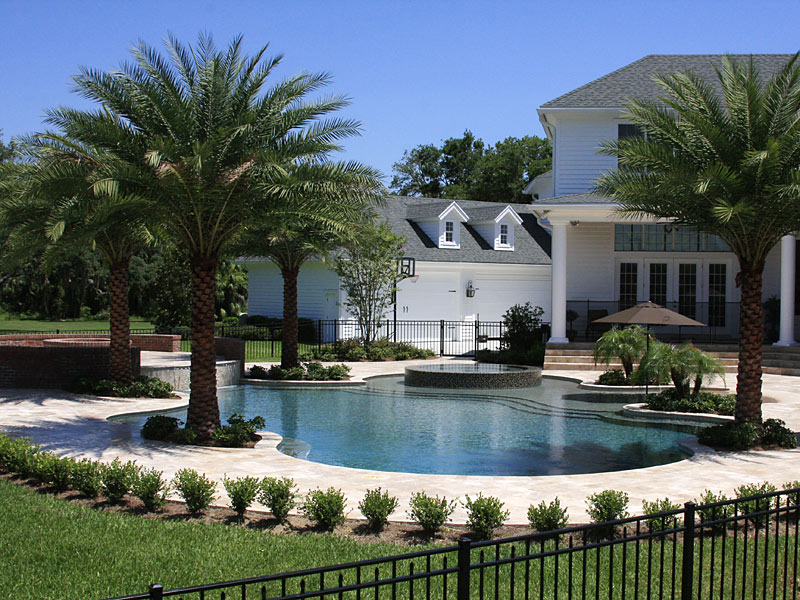

Does a swimming pool boost home value? The answer isn’t a simple yes or no, but rather a nuanced exploration of industry forces, design, and maintenance. A well-planned and executed pool addition can significantly boost property value, but a poorly conceived or maintained one could potentially decrease it, especially when considering your neighborhood. This thorough guide will delve deep into the impact of swimming pools on property values, helping you make informed decisions about your home improvement projects. We’ll explore the various factors, from design aesthetics to local industry trends. This article will cover the nuanced considerations involved, from planning and construction to safety and maintenance, ultimately providing a strategic roadmap to maximizing your investment. It is your guide to unlocking your home’s potential with a swimming pool addition.
Initial Considerations for a Pool Investment
Understanding industry Forces
Before diving into the design or costs of installing a swimming pool, it’s crucial to understand the local real estate industry. industry trends and local demand play a significant function in determining the perceived value addition. High-end homes in affluent neighborhoods often see a premium for swimming pools, while simpler, more modest homes in less affluent communities might not see the same return. The presence of other amenities in the neighborhood, such as parks with public pools, will also impact the industry perception.
Assessing Your Budget and Needs
Homeowners must honestly assess their budget and priorities. Swimming pool installations can scope from modest to extravagant depending on design choices. Factors such as the size of the pool, materials used, and the complexity of the surrounding landscaping will all have significant impacts on the final cost. Prioritize what matters most for you and your family. Is it luxury, functionality, or the resale value? Understanding your personal needs helps determine the investment’s suitability for your home and budget.
Exploring Design and Aesthetics
The design and aesthetic appeal of the pool play a crucial function in its perceived value. Modern designs often command more compared to traditional ones. A visually appealing pool area that complements the home’s architecture and surrounding landscape adds significant value. Consider factors such as landscaping, lighting, and outdoor seating when planning the pool area, as these enhance the overall appeal and appeal to a wider scope of potential buyers.
Pool Types and Their Value Impact
Inground Versus Above-Ground
The type of pool significantly influences its resale value. Inground pools, typically built into the ground, are considered a significant enhancement for homes, often increasing resale values. They are generally perceived as more luxurious and prestigious than above-ground pools, which are installed on the surface of the ground. In areas where homebuyers desire luxurious amenities, an inground pool can be crucial to the purchase decision.
Shape, Size, and attributes
The shape, size, and unique attributes of the pool also affect its perceived value. Lap pools, for instance, might appeal to athletic homebuyers, whereas a large family pool appeals to those with children or guests. Swimming pools with additional attributes like spas, waterfalls, or built-in lighting often command a higher price point, particularly in high-end industrys. The careful incorporation of these attributes will directly influence the home’s value.
Pool Maintenance and Safety
Long-term Costs of Pool Maintenance
Homeowners must consider the long-term cost of pool maintenance when assessing the value of a pool. Maintenance includes cleaning, filtration, chemical treatments, and repairs, which can be significant over time. A well-maintained pool adds value to the home through its aesthetics and functional safety attributes. The cost of pool maintenance can dramatically boost resale value through the assurance of safety and functional facets of the pool.
Safety attributes and Regulations
Ensuring the pool area is safe and compliant with local regulations is vital. Safety attributes like fences, alarms, and adequate pool depth can add value through the assurance of safety to the neighborhood.
Understanding Local Regulations
Local codes and regulations regarding pool construction and safety attributes should be thoroughly checked, as they are critical factors to consider. Local regulations frequently impact the costs and designs involved with adding a pool. Failure to comply with these regulations may diminish the pool’s value, leading to potentially costly corrections and impacting resale value.
industry Comparison and Appraisal
Comparable Homes with Pools
Analyzing comparable homes with pools in the same area is critical to understanding the impact on value. study recent sales data for similar properties with and without pools to get a realistic view of the premium a pool adds. This is critical to determining the return on investment for a pool addition.
Professional Appraisal
Consulting with a real estate appraiser is highly recommended to get a professional assessment of the potential boost in property value, especially before investing a significant sum of money on installing a pool.
Property Value Trends
Staying informed about recent property value trends in the area can help you understand the local industry demand and ensure you make informed decisions that directly impact your home’s value in the future.
Conclusion
The Real Value of a Pool Addition
A well-designed and maintained swimming pool can definitely boost home value, but the extent of that boost is nuanced and influenced by factors like local industry trends, pool attributes, and safety factors. By conducting thorough study, understanding local regulations, and consulting with a professional appraiser, homeowners can make a sound decision when considering adding a pool to their home, especially within a strategic, long-term investment plan.
Next Steps
Contact a real estate agent or appraiser in your area to get personalized guidance and assess the potential ROI of adding a pool to your home. Utilize online resources to gather information on local regulations and industry trends for your specific area. Begin the process with thorough study.
FAQs
How much does adding a swimming pool boost home value?
Adding a pool can significantly boost home value, but the actual boost depends on many factors like the location, pool design, size, and maintenance. Consult with real estate professionals and conduct industry study on similar properties in your area to gain a realistic understanding of the local industry and trends. Be prepared for potentially varied outcomes across various neighborhoods.
What are the long-term costs associated with owning a swimming pool?
Long-term costs include regular maintenance like cleaning, chemical treatments, filtration system upkeep, and potential repairs. These costs vary depending on the size of the pool, the materials used, and the frequency of use. It’s crucial to factor these long-term costs into the overall cost-benefit examination when making your decision.
In conclusion, adding a swimming pool can significantly boost a home’s value, but it depends on numerous factors, including location, local industry trends, and the quality and design of the pool itself. Consider consulting with a real estate agent or appraiser to get a personalized assessment of the potential return on investment. If you’re thinking of adding a swimming pool, careful planning and study are key to maximizing its impact on your home’s value. By understanding the local industry, considering design and quality, and focusing on factors like safety and maintenance, homeowners can maximize the potential for a profitable addition.